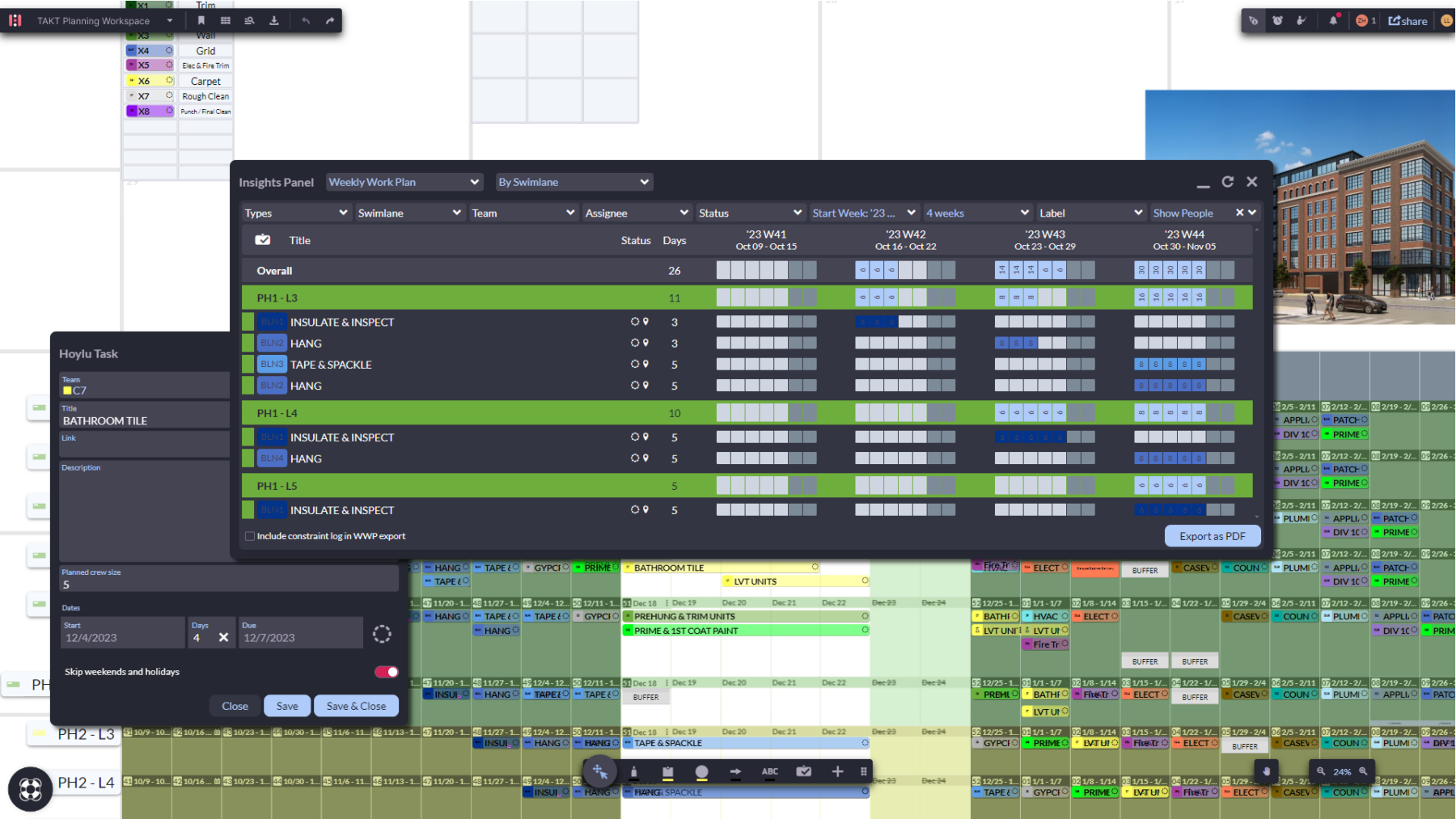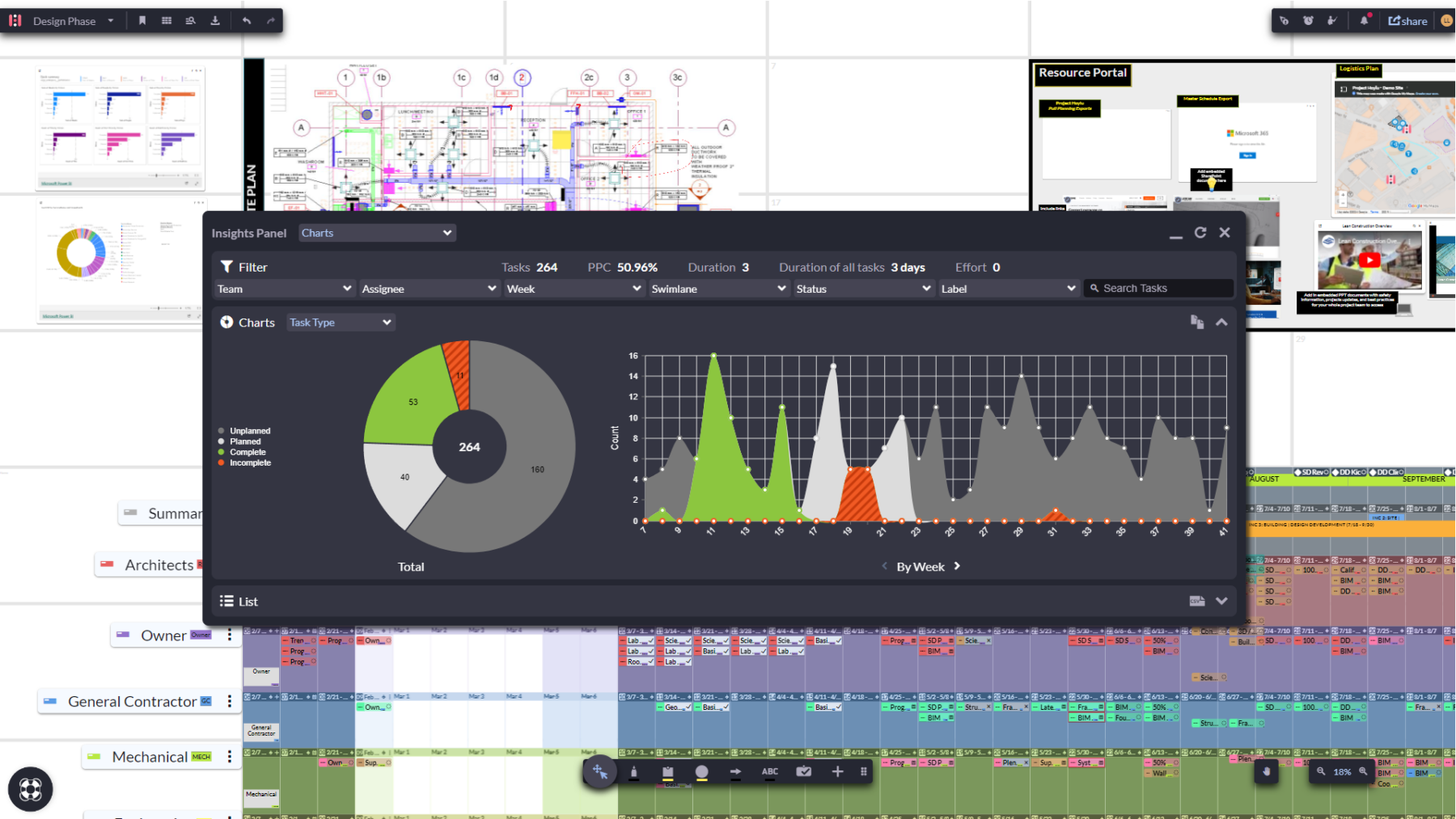All aboard: Hoylu’s unique approach to construction collaboration
The project management software’s unique approach and ease of use has caught the attention of Canada’s biggest contractors.

What started as a high-tech whiteboarding solution designed for brainstorming sessions has become an essential tool for some of the largest construction projects in North America.
“Whether you’re building a doghouse or a $5 billion hospital, Hoylu works,” says Zach Hurvitz, Senior Vice President of Sales and Customer Success for Hoylu.
Originally, Hoylu wasn’t even intended for the construction industry. But the tool’s intuitive blend of task management, whiteboarding, and collaboration tools—paired with an eclectic expert team that has mastered ease-of-use—caught the attention of contractors looking for something different. Now, Hoylu has become a software solution for some of Canada’s biggest names in construction, like EllisDon and Chandos.

Hoylu’s origins are deeply rooted in innovating to meet customer needs. Starting in 2016, the company initially focused on interactive whiteboarding and display technology for all sectors.
“We began by offering in-person collaboration tools, but we quickly recognized an opportunity in the construction industry,” says Hurvitz.
The company’s journey from display solutions to a full-fledged software as a service (SaaS) company has been marked by the shift toward digital-first project management, a transition prompted by the global pandemic’s acceleration of online collaboration.
While Hoylu’s early focus was broad, spanning industries like agile development and general collaboration tools, it wasn’t long before construction emerged as their primary target market.
“We noticed that construction teams were buying our whiteboarding solutions, even when they had access to other tools,” Hurvitz explains. “They loved how intuitive and easy it was to use compared to other software on the market. So, we doubled down on construction.”
Hoylu’s success in the construction industry can largely be attributed to its user-centric approach. Hurvitz explained that many construction management tools on the market today are comprehensive but unwieldy, bogged down by complex features that deter widespread adoption. Hoylu, on the other hand, prides itself on ease of use.
“We wanted to create a tool that construction teams, who are often more familiar with hands-on work than software, could adopt quickly without a steep learning curve,” says Hurvitz.
Hoylu’s interface is clean and minimal, with an emphasis on visual clarity. This simplicity is crucial for on-site teams who need real-time updates without technical hassles. Hurvitz points out that Hoylu’s automatic generation of look-ahead schedules—a task that traditionally takes hours of manual input—saves users considerable time.
Hoylu’s team is so focused on clarity and ease of use, that they recently implemented dynamic text resizing so content doesn’t get lost when users are looking at the bigger picture.
When it comes to Hoylu’s recent entry into the Canadian market, Hurvitz explained that it happened organically.

“The construction industry in Canada, especially with firms like Chandos and EllisDon, is extremely forward-thinking,” said Hurvitz. “They understand the value of tools that enable collaboration and streamline complex workflows.”
EllisDon implemented Hoylu on major projects like the Royal Columbian Hospital redevelopment in B.C. Chandos Construction has adopted Hoylu across several regions as a standard part of their project management toolkit, particularly in the Calgary area.
Why are these contractors choosing Hoylu? Hurvitz explained that unlike traditional construction software that can feel rigid or overly complex, Hoylu strikes a balance between structured and unstructured data, allowing teams to customize their workflows while maintaining essential analytics and reporting capabilities.
“We’re providing the structure that construction teams need while offering the flexibility to adapt to each unique project,” says Hurvitz. This ability to serve both small projects and multi-billion-dollar developments, like hospital projects, gives Hoylu a competitive edge.
Looking ahead, Hurvitz sees the future of construction management heading toward widespread digitization, with tools like Hoylu at the forefront of that change.
“There’s going to be a clear separation between companies that embrace digital transformation and those that don’t. The firms that adopt tools like Hoylu will be able to operate more efficiently, make fewer mistakes, and ultimately be more profitable. We’ve just scratched the surface of what Hoylu can do for the construction industry.”
